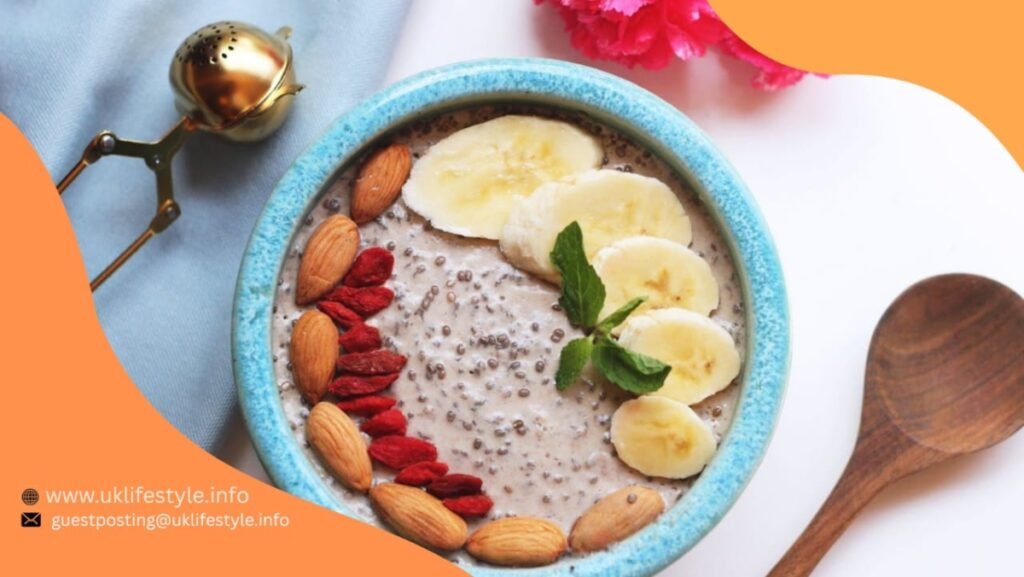Eating healthy isn’t about strict limitations, staying unrealistically thin, or depriving yourself of the foods you love. Rather, it’s about feeling great, improving your health, and boosting your mood with real, nutritious food. Whether you’re looking to shed weight, improve your digestion, or fuel your body with clean energy, incorporating healthy foods into your daily routine is key.
Let’s break down the top foods, meal ideas, and practical tips to help you eat better every day.
Why Healthy Eating Matters
Healthy eating builds a foundation for energy, mental clarity, and chronic disease prevention. Consuming nutrient-dense foods helps regulate weight, supports your immune system, and improves heart, brain, and gut health. With the right dietary choices, you can reduce inflammation, manage blood sugar, and even slow aging.
Top 10 Healthy Foods to Eat Every Day
These are the core ingredients you should try to eat daily or weekly for optimal health.
1. Water
The foundation of all nutrition—hydration.
Drink 8 to 12 cups of water daily to support digestion, metabolism, and cellular health.
2. Dark Green Vegetables
Include spinach, kale, broccoli, brussels sprouts, and green peppers.
Aim to eat them 3–4 times per week for vitamins A, C, K, fiber, and antioxidants.
3. Whole Grains
Choose whole wheat, oatmeal, quinoa, barley, rye, and amaranth.
Whole grains offer complex carbohydrates and fiber to keep you full longer.
4. Beans and Lentils
These fiber-packed plant proteins are excellent for heart health and weight loss.
Add them to soups, stews, salads, or even dips. Eat at least once a week.
5. Fish
Rich in omega-3 fatty acids, fish like salmon, trout, herring, and tuna improve heart and brain health.
Aim for 2–3 servings per week.
6. Berries
Low in sugar and high in fiber, blueberries, raspberries, strawberries, and blackberries are perfect snacks.
Include 2–4 servings of fruit per day.
7. Winter Squash
Eat butternut squash, sweet potato, mango, and cantaloupe for vitamin A and beta-carotene.
These are immune-boosting, eye-protective foods.
8. Soy
Try tofu, edamame, tempeh, and soy milk for plant-based protein and cholesterol-lowering properties.
Aim for 25 grams of soy protein daily.
9. Flaxseeds, Nuts, and Seeds
Add flaxseeds, chia seeds, walnuts, and almonds to meals for fiber, healthy fats, and satiety.
Eat 1–2 tablespoons or 1/4 cup of nuts daily.
10. Organic Yogurt
Excellent for calcium and probiotics. Choose low-fat or Greek yogurt to support bone and gut health.
Adults need 1000–1200 mg of calcium daily.
Best Healthy Foods for Weight Loss
Weight loss isn’t just about cutting calories—it’s about eating the right kind of calories.
High-Fiber Vegetables
Leafy greens, broccoli, and cabbage help you feel full with fewer calories.
Protein-Rich Foods
Eggs, lean chicken, fish, and legumes stabilize blood sugar and promote muscle retention during fat loss.
Whole Grains
Quinoa and oats are excellent for breakfast and help prevent overeating later in the day.
Fruits with Low Glycemic Index
Apples, pears, berries, and grapefruits are weight-loss-friendly.
Fermented Foods
Kimchi, kefir, and sauerkraut enhance gut health and digestion, aiding long-term fat burning.
Top 25 Superfoods to Add to Your Grocery List
In addition to the top 10, these superfoods offer exceptional nutrient density:
- Beets
- Artichokes
- Sweet potatoes
- Tomatoes
- Carrots
- Garlic
- Ginger
- Turmeric
- Avocados
- Chia seeds
- Almonds
- Walnuts
- Green tea
- Matcha
- Olive oil
- Seaweed
- Eggs
- Apples
- Kiwi
- Pomegranate
- Mushrooms
- Papaya
- Pumpkin seeds
- Dark chocolate (in moderation)
- Red cabbage
Healthy Meal Ideas Using Superfoods
Breakfast
- Overnight oats with chia, berries, and flaxseed
- Greek yogurt parfait with granola and blueberries
- Spinach and mushroom egg white omelet
Lunch
- Quinoa bowl with grilled chicken, kale, avocado, and sweet potatoes
- Lentil soup with carrots, garlic, and tomatoes
- Hummus wrap with cucumber, spinach, and peppers
Dinner
- Grilled salmon with roasted Brussels sprouts and barley
- Stuffed bell peppers with quinoa and black beans
- Stir fry with tofu, broccoli, and sesame oil
Snacks
- Apple slices with almond butter
- Hard-boiled eggs
- Berries with a handful of walnuts
Unhealthy Foods to Avoid
Some foods can sabotage your health and slow down your progress.
- Sugary sodas and energy drinks
- Deep-fried snacks (e.g., chips, fries)
- White bread and refined grains
- Processed meats (e.g., bacon, sausages)
- Packaged sweets and pastries
- Artificial sweeteners and additives
- Fast food burgers and pizzas
- Excess alcohol
- Ice cream and sugar-laden yogurts
- Store-bought dressings and sauces (often high in sodium and sugar)
Eating Tips for Lifelong Healthy Habits
- Cook at home more often to control ingredients
- Practice portion control
- Avoid skipping meals to stabilize metabolism
- Stay consistent with water intake
- Prep meals in advance for the week
- Eat mindfully and slowly
10 Frequently Asked Questions (FAQs)
1. What are the healthiest foods to eat every day?
Water, leafy greens, whole grains, berries, yogurt, and lean protein sources like fish or beans are among the healthiest daily choices.
2. What food helps with weight loss fast?
High-protein, high-fiber foods like eggs, legumes, quinoa, and leafy greens are excellent for sustained weight loss.
3. Is it good to eat yogurt every day?
Yes. Yogurt provides probiotics, calcium, and protein that benefit digestion and bone health.
4. What fruits burn belly fat?
Berries, grapefruit, and apples have low sugar and high fiber, making them ideal for belly fat reduction.
5. Can I eat whole grains on a low-carb diet?
Yes, in moderation. Choose fiber-rich whole grains like quinoa or steel-cut oats for balanced carbs.
6. How many servings of vegetables should I eat daily?
Aim for 3 to 5 servings of a variety of vegetables per day.
7. What’s better for weight loss: beans or meat?
Beans are lower in calories and fat, rich in fiber, and great for plant-based protein and weight control.
8. Is fish healthier than red meat?
Yes. Fish is rich in omega-3s and lower in saturated fat compared to most red meats.
9. What are some quick healthy snacks?
Greek yogurt, boiled eggs, raw veggies with hummus, or mixed nuts make great quick snacks.
10. Can superfoods replace medication?
While they support health, superfoods are not a replacement for prescribed medication. Always consult your doctor.
Final Thoughts
Healthy eating isn’t about perfection—it’s about balance, sustainability, and intention. By prioritizing a diet rich in vegetables, fruits, legumes, whole grains, healthy fats, and lean protein, you’re giving your body the nutrients it needs to function at its best. Whether your goal is to lose weight, feel more energized, or simply live longer, it all starts with what’s on your plate.



